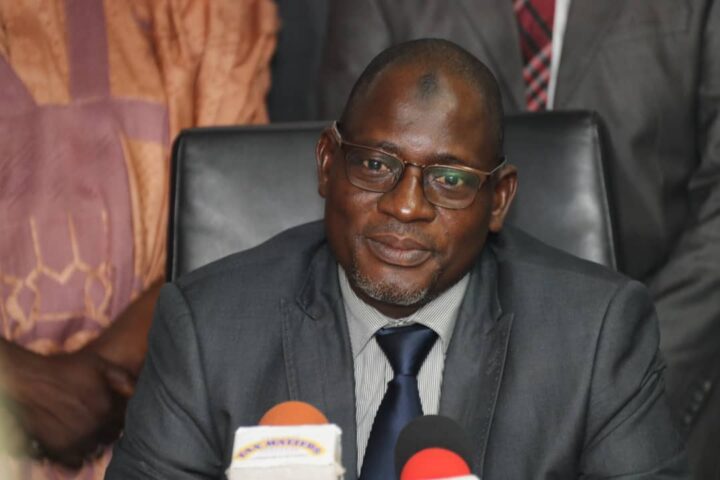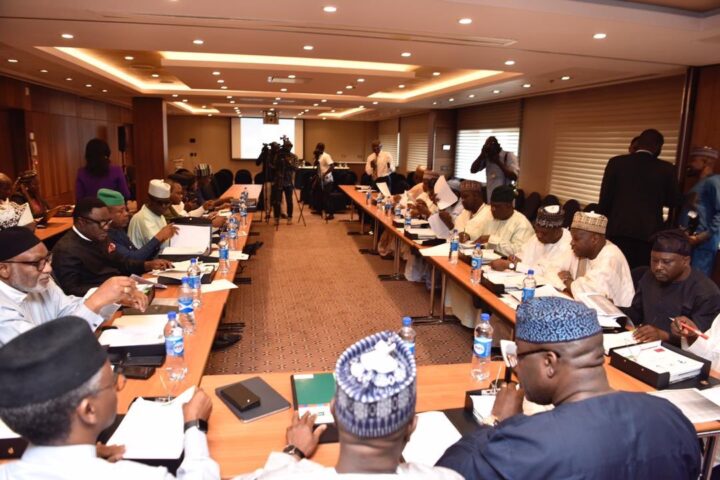In this season of job cuts and reforms occasioned by covid-19, resentments are bound to occur even in the best-organised institution. This, I believe, is the reason for what looks like a media war waged by some disgruntled directors of the Federal Inland Revenue Service (FIRS) who were relieved of their jobs recently. Nevertheless, there has been no disquiet at “Revenue House”, the headquarters of the nation’s tax collector.
As oil revenues dry up and customs duties recede, tax revenues are the last hope for the nation’s economy. Those trying to cause a distraction to FIRS ought to be cautioned. I don’t see anything wrong in a new executive chairman of FIRS who was named last December, Muhammad Nami, trying to reform the Service. As the saying goes, a new broom sweeps clean.
From the reports I’ve read so far, the grouse of the protesters is that nine directors were retired by the board of FIRS, after a meeting in late March this year. It’s not even the retired directors that have been hostile to the management but some of their lackeys; some of the ex-directors were given new appointments at FIRS on a contract basis.
Struggles over jobs are not strange these days. Even the federal and state governments are now looking to cut costs in the face of dwindling revenues, so much so that the report of the “Presidential Committee on Restructuring and Rationalisation of Federal Government Parastatals, Commissions and Agencies”, otherwise known as the Oronsaye Report, submitted eight years ago is being resurrected. Some state governors have cut the monthly pay of their political appointees. To save jobs and at the same time save the government, every chief executive would prefer to look in the direction of its topmost officers. And the reason is not far-fetched: one director’s pay could pay 10 to 20 workers at the lowest rung of the ladder.
Advertisement
Let’s examine the facts as presented by the FIRS rebels and those presented by the FIRS authorities.
The first issue in contention is the legality of their compulsory retirement on the grounds that they had served for eight years or longer as directors. The retirees say that was the civil service rule during the Yar’Adua administration but that it was repealed in June 2016 by the Buhari regime. But the FIRS authorities say FIRS, like the NNPC, Central Bank and CAC, is part of the public service, not civil service, and is therefore answerable to its board which has the power to hire and fire without recourse to the civil service rule. The retirees say the 2016 memo from the head of service of the federation reversing the old order subsists because it was copied to FIRS and other agencies.
FIRS disagrees that tribalism is an issue. “If any FIRS worker had been a victim of tribalism or religious discrimination in the past, I say to such marginalized worker, not anymore and not on my watch at the FIRS,” Executive Chairman Nami declared. A list made available by FIRS boasts directors from different tribes: Chiaka Okoye, Olufemi Faniyi, Asheikh Madugu, Innocent Ohagwa, Ezra Zubairu, Faosat Oguniyi, Kola Okunola, Auta Mohammed, and Nneka Ofekwuna who is the board secretary. “The current management team is composed of two Yoruba, two Igbo, and two northern minority tribes; and in all there are four Christians and three Muslims in the current FIRS management team,” its statement says.
Advertisement
Another issue concerns the use of contract staff while people with needed skills and competence are available in the regular FIRS workforce. In a response, FIRS’ communication director Abdullahi Ismaila Ahmad said due process was followed, adding that they were contract officers engaged for two years to carry out specific assignments “in line with Section 2.22 of the FIRS HRPP and approved by the FIRS board”.
Ultimately, the retired directors or their minions are fighting a battle they’re sure to lose. In times of financial crisis, no government agency or private employer would fail to shed its staff weight. By the time the federal government starts implementing the Oronsaye Report, many heads will roll. Labour unions including ASUU and NASU now threatening fire and brimstone over reduction of their salaries and allowances via IPPIS are simply wasting valuable time. Otherwise, the national economy would collapse completely in a short while. And if that happened, almost everyone would be out of job – there would be no money to pay even the minimum wage, and there would be nobody to enforce the civil or public service rules.
That some of the retired directors are unhappy is understandable, however. Times are really hard in the country. No matter how much they had saved for the rainy day, starting and running a business won’t come easy, even as bills would keep piling up. But the ex-FIRS directors are even lucky they worked in a revenue-generating agency that can therefore pay their terminal benefits. Many in the private sector don’t expect any pay as long as lockdowns continue and their business premises remain shut. Those in Nigeria’s public sector should not hope to receive even their monthly salaries after the next few months, unless the prices of oil shoot up and there’s a market for crude. An effort aimed at pulling FIRS down may even worsen the situation, because it’s perhaps Nigeria’s only hope now.
Just as I’ve advised my friends who are directors in other agencies, I now advise my friends displaced at FIRS to join us on our entrepreneurship journey. I retired as a managing director in a private outfit as soon as I turned 50 a few years ago. I’ve not looked back since then. And I’ve not died! This time calls for job creators, not jobseekers. Those who have benefitted much from their privileged positions at FIRS now have a chance to practise what they had been teaching their friends in the private sector.
Advertisement
As I said earlier, FIRS will not be the last federal agency that will tinker with its workforce this year. I’ve just read that a probe into “lopsided” recruitment in the NNPC is afoot. There are murmurings in the Central Bank too. Certainly, layoffs of epidemic proportions will happen in the country’s public service this year or next.
Whoever gets affected by the impending reforms should quietly go home. They could go on a vacation to refresh – so they could think more clearly over how to confront the challenges ahead. Starting a fire at a former workplace is an ill-wind that will blow no one any good. We’re in this looming economic recession together.
Nwamu, an entrepreneur, is the CEO of Eyeway.ng
+234-8054100220 (SMS/WhatsApp only)
Advertisement
Views expressed by contributors are strictly personal and not of TheCable.
Add a comment







